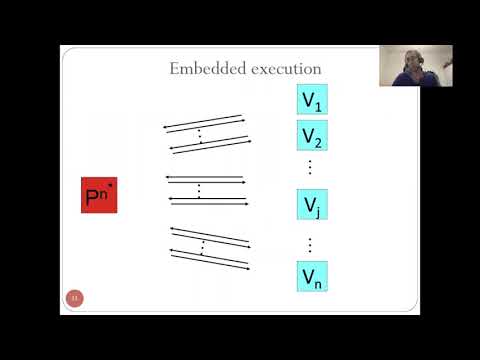CryptoDB
A Tight Parallel Repetition Theorem for Partially Simulatable Interactive Arguments via Smooth KL-Divergence
| Authors: |
|
|---|---|
| Download: |
|
| Conference: | CRYPTO 2020 |
| Abstract: | Hardness amplification is a central problem in the study of interactive protocols. While "natural" parallel repetition transformation is known to reduce the soundness error of some special cases of interactive arguments: three-message protocols (Bellare, Impagliazzo, and Naor [FOCS '97]) and public-coin protocols (Hastad, Pass, Wikstrom, and Pietrzak [TCC '10], Chung and Lu [TCC '10] and Chung and Pass [TCC '15]), it fails to do so in the general case (the above Bellare et al.; also Pietrzak and Wikstrom [TCC '07]). The only known round-preserving approach that applies to all interactive arguments is Haitner's random-terminating transformation [SICOMP '13], who showed that the parallel repetition of the transformed protocol reduces the soundness error at a weak exponential rate: if the original m-round protocol has soundness error (1 − ε) then the n-parallel repetition of its random-terminating variant has soundness error (1 − ε)^{ε n/m^4} (omitting constant factors). Hastad et al. have generalized this result to the so-called partially simulatable interactive arguments. In this work we prove that parallel repetition of random-terminating arguments reduces the soundness error at a much stronger exponential rate: the soundness error of the n parallel repetition is (1 − ε)^{n/m}, only an m factor from the optimal rate of (1 − ε)^n achievable in public-coin and three-message arguments. The result generalizes to partially simulatable arguments. This is achieved by presenting a tight bound on a relaxed variant of the KL-divergence between the distribution induced by our reduction and its ideal variant, a result whose scope extends beyond parallel repetition proofs. We prove the tightness of the above bound for random-terminating arguments, by presenting a matching protocol. |
Video from CRYPTO 2020
BibTeX
@inproceedings{crypto-2020-30351,
title={A Tight Parallel Repetition Theorem for Partially Simulatable Interactive Arguments via Smooth KL-Divergence},
publisher={Springer-Verlag},
doi={10.1007/978-3-030-56877-1_19},
author={Itay Berman and Iftach Haitner and Eliad Tsfadia},
year=2020
}

